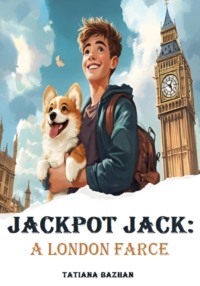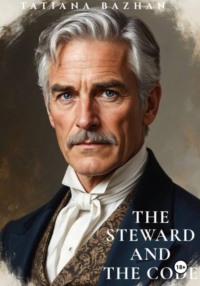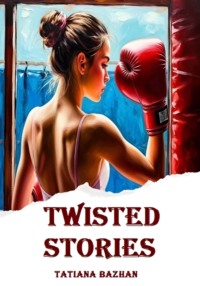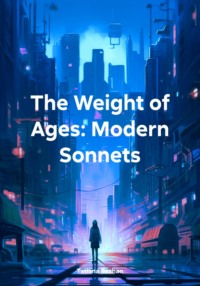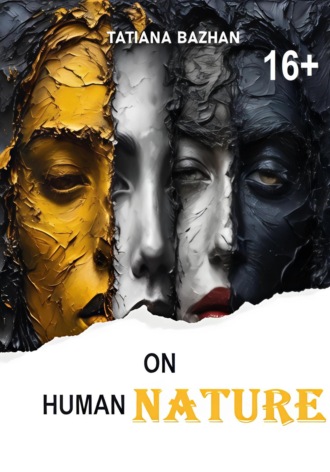
Полная версия
On human nature

Tatiana Bazhan
On human nature
Story 1


Natalie was a wisp of sunshine personified. Her laughter, bright and tinkling, followed her like a happy little echo wherever she went. She approached the world with wide, curious eyes, eager to discover its secrets. A dew-kissed spiderweb transformed into a miniature diamond palace, a buzzing bee held the key to the flower’s sugary heart – every little thing held magic for Natalie.
She skipped more than she walked, her pigtails bouncing with each carefree step. Mud puddles were not obstacles, but delightful opportunities for a splash. Scraped knees were badges of honour, proving she’d been adventuring. Natalie didn’t worry about tomorrow; she lived fully in the vibrant, exciting now.
Her open heart was a welcome mat for anyone she met. A shy smile from a stranger, a lonely bird with a broken wing – Natalie offered kindness without hesitation. She saw the good in everything and everyone, radiating warmth that drew people to her every now and then. Her curiosity wasn’t just about knowing what, but understanding why, fostering an empathy that belied her young age. Natalie was a reminder that joy is a choice, and she chose it every single day.
Story 2

Beata had always felt like a mismatched sock in a drawer of perfectly paired sets. The relentless normalcy of her parents, their predictable routines and unwavering expectations, suffocated her.
So, Beata invented a sickness. It started as a vague fatigue, a persistent headache she’d whisper about. Then, there came dizziness. She researched obscure ailments, mimicking symptoms she found online. The more attention she received, the more elaborate her charade became. Doctors poked and prodded, running countless tests that revealed nothing. Yet, Beata insisted, her voice laced with a fragile conviction. She revelled in the hushed concern, the permission to withdraw from obligations, the escape from the life she didn’t want.
Her parents, initially worried, grew increasingly frustrated. They saw through her act, but their attempts to reason with her were met with theatrics and silent tears. Beata had built a castle of illness, a sanctuary from the ordinary. Inside, she was the tragic heroine, forever misunderstood, forever unwilling to embrace a life deemed acceptable by everyone but herself.
Story 3

Seamus stood before the flickering candlelight, the icon of Saint Brendan casting a warm glow that contrasted starkly with the chilling shadows of his past. His mother’s eyes, once filled with hope, now mirrored the relentless pain of disappointment. “You can’t keep running from this,” she had whispered, but the weight of her words faded like the Irish mist that enveloped their village.
With a heavy heart, he swore – through clenched teeth and trembling hands – that he would forsake the bottle that had stolen his dreams. Yet, in that moment of resolve, another voice beckoned him, one that promised a fleeting escape from the suffocating grip of reality. The allure of the nearby pub called like a siren to a weary sailor, each note harmonizing with the echoes of laughter and camaraderie.
In a heartbeat, Seamus felt the pull of nostalgia and regret intertwine, each step toward the pub whispering tales of his childhood ambitions. He could almost hear the roar of engines, feel the wind against his face as he was soaring through the skies, just like his father had. But instead, he surrendered to the familiar embrace of defeat, the taste of dreams lost drowning amidst a sea of whiskey.
Story 4

In the dim light of his cramped studio in London, a young artist named Elias sculpted his visions with passion. Each stroke of paint was born from the depths of his soul, capturing the beauty and anguish of life as he was staring into the abyss of starvation. The walls around him were adorned with canvases alive with emotion – golden sunsets drenched in sorrow and faces that were whispering secrets of forgotten dreams.
When his first painting sold, a rush of exhilaration flooded him, momentarily filling the void of hunger. The money was more than just currency; it transformed into lavish dinners and a warm bed. With each new success, however, the allure of comfort wrapped around him, like a silken shroud, stifling the rawness that had fueled his art.
As he indulged in the pleasures of newfound wealth – glittering soirées and sumptuous feasts – his brushes lay idle, collecting dust like forgotten dreams. The vibrant colours that once flowed from his heart dulled into paler hues, and the canvases began to languish, stale and uninspired. Elias watched helplessly as the radiant fire of his talent dimmed, forever longing for the days when hunger was his muse.
Story 5

Lark was born under the sky bruised with the promise of storms, a fitting omen for a life dedicated to weathering them for others. Even as a child, he possessed an uncanny awareness of injustice, a burning empathy that made him rush to the aid of stray animals and bullied classmates. He wasn’t the strongest, nor the fastest, but his fierce determination and unwavering belief in fairness often tipped the scales.
As he was growing older, this innate protectiveness solidified. He trained in various disciplines, not for aggression, but for defense. He saw the world as a place of vulnerability, and felt an almost physical pull towards the fraying edges.
Lark never sought recognition or reward. He was a quiet guardian, appearing in the shadows to offer a hand, a shield, or a voice to those who had none. Some called him a fool, others a saint, but Lark simply saw himself as an instrument, a conduit for compassion in a world that often seemed determined to extinguish it. He was a bulwark against the tide, forever standing between the vulnerable and the storm, a silent promise whispered on the wind.
Story 6

Angus McGregor, a middle-aged Scotsman, was walking along the streets of the vibrant town of Inverness in search of money and … love.
In fact, he wasn’t particularly choosy when it came to love – he cared more for gold than for glittering eyes or charming smiles. “Aye,” he’d declare with a twinkle in his eye, “I’m after a catch that won’t just keep me warm but also fill my pockets!” Angus spent his days roaming the town, scouting the wealthiest widows. He’d approach each with a proposal as sweet as haggis pie: “Good day, madam! Would you fancy a stroll to the bank?” His offers were met with raised eyebrows, and sometimes, a hearty laugh. He didn’t mind. Every giggle was just a note in his ambition.
One fateful evening, while attending the annual Highland Fling, he stumbled upon Lady Agatha, a fabulously wealthy dowager known for her towering hats and legendary temper. Over a plate of deep-fried chips, Angus boldly declared, “What do you say if we join our fortunes and live like kings?” To his astonishment, Lady Agatha roared with laughter so heartily, that it nearly toppled her hat. “Only if you promise to keep the haggis on the menu!”
And just like that, Angus found his fortune … and a fiery companion.
Story 7

In the dim light of her cluttered living room, Barbara was sitting curled on the worn sofa, the air thick with the weight of unspoken dreams. At twenty-five, she was a ghost of her former self, a shadow flickering between the vibrant aspirations of her youth and the dull ache of sacrifice. Each day, she poured her heart into her child’s laughter, believing that motherhood would fill the cavernous void of her own suppressed ambitions. Yet, in her relentless pursuit of making her child happy, she found herself drifting farther away from them both.
As the evening light slipped through the window, Barbara watched her daughter play, the innocence of childhood dancing just beyond reach. Yet, behind every smile, there lay an unvoiced longing, an echo of the ambitions Barbara had cast aside. Instead of closeness, an invisible wall sprawled between them, built from Barbara’s silent regrets.
In that moment, she realised that happiness could not be manufactured through self-sacrifice alone. Love demanded authenticity, a sharing of dreams and fears, not a quiet surrender. With a heart full of unspoken words, she resolved to reclaim her aspirations – not just for herself but for the vibrant little girl who deserved a mother whole and unbroken.
Story 8

In the bustling streets of Cardiff, where the scent of fish and chips mingled with the distant melodies of a street musician, two best friends, Dylan and Rhys found themselves arguing. Their lives were revolving around their charming neighbour, Elin, a radiant spirit with laughter as contagious as a cold. Day in and day out, they were conjuring elaborate schemes to win her heart, from serenading her with off-key ballads to staging epic bake-offs – though both of them were more adept at ordering takeout than baking.
Unbeknownst to them, Elin was caught up in a whirlwind romance of her own. While they were squabbling over who’d be the first to gift her a wilted daffodil or a questionable poem about love, she had quietly tied the knot with a dashing chap she had met at the local market. And just as their grand plans reached a crescendo, she gave birth to a lovely baby boy to her husband.
“Oi, mate, did you hear? Elin’s got a kid!” Dylan exclaimed one afternoon, catching Rhys mid-sneeze, his grand ballad completely forgotten. They stared at each other in disbelief, then erupted into laughter, their friendship blossoming anew with the rhythm of unwitting oblivion.
Story 9

In the heart of Edinburgh, where the cobblestones whispered tales of ancient times, a young man named Alistair was confined to his wheeled-chair. He had exchanged the vibrancy of life for the stark reality of his 15-metre flat, devoid of windows – a silent prison that overlooked naught but the shadows of his own thoughts.
Yet, Alistair was a dreamer. With a mind that was soaring far beyond the confines of his brick walls, he was traversing distant lands. He imagined the bustling markets of Marrakech, the fragrant streets of Bangkok, and the sun-soaked piazzas of Rome, where food became an art – a symphony of spices and textures that danced upon his palate. Each day, he wove elaborate tales of his gastronomical adventures into the fabric of his solitude, savouring the imagined tastes of paella, sushi, and gelato.
But as the sun dipped below the horizon, painting the sky in shades of melancholy, reality would wash over him like the tides. His flat, that sheltered him from the world he was so desperately craving, echoed only with the silence of unfulfilled dreams. In that solitude, he too became a memory, floating endlessly through the vast landscapes of his imagination, yet, never truly belonging to any of them.
Story 10

In every visit to the Astrakhan Kremlin, where the world seems removed from the bustle of everyday life, a little girl finds solace and her imagination carries her to a field. She sits down by a leaning oak tree, whose roots penetrate deep into the earth, and whose branches, despite withering, still carry hope. This place, lost among the grandeur of white brick walls, is her personal oasis.
With the arrival of spring, the old tree finds a new life, tender shoots blooming from the cracked bark. Every year this cycle reminds her of the importance of adapting, overcoming difficulties, as a smile breaks through tears. Summer days, when greenery seems to fill everything around, become for her a symbol of joyful moments, fleeting but bright, like sunbeams breaking through foliage.
With autumn comes reflection, when the leaves begin to fall, creating a colourful carpet underfoot. It is a time of purification and the birth of new hope. And so, sitting by her tree, she understands: every end is just the beginning of something new, and despite all the trials, life continues to blossom.
Story 11

Aoife would sit by her window every day, the soft light of dawn streaming through her lace curtains. Her gaze was unwittingly following the young man, Fionn, as he was passing by on his way to work. He was a figure of a vibrant life, his laugh brightening the grey mornings and his dreams casting ripples of joy around him.
Day by day, Aoife was building a world woven from fleeting glances and unspoken words. In her mind, they were dancing under the stars, the gentle breeze carrying the sweet scent of wildflowers. She would conjure up picnics beneath the sprawling oak, each bite of bread accompanied by laughter, their voices mingling in a melody of joy. Sometimes, she pictured quarrels flaring like sudden storms – tempers rising, only to be calmed by a shared smile.
But as the days melted into weeks, the lines between her fantasies and reality blurred until she awoke one morning, having danced her last dance. Lifeless in her bed, Aoife remained in the embrace of her dreams while her heart, content in its clandestine love, had ceased to beat. In the village, the world continued, unaware of the love story that ended too soon.
Story 12

Dr. Wilson was sitting in his office, the stately chair beneath him radiating the same silent confidence he had once felt when starting his career of a doctor. His eyes wandered to his gold mechanical watch, an expensive specimen that had been purchased during the most difficult time of his life.
Each strike of the good, accurate watch reminded him of the sacrifices he had made: days of undernourished food and sleepless nights in search of injections of life. But now, looking at his watch, he got conscious of the fact that he was mired in a paradigm where enlightenment had faded into the background, giving way to the race for money. The face of every patient who entered his office began to take the form of numbers and calculations for which he seemed ready to sell his soul.
“What have I done?” he involuntarily asked himself, feeling a chill run down his spine. In the mirror he saw not only grey hair, but also disappointment that had overshadowed his passion for healing.
Story 13

In the quiet valleys of Wales, where the hills embraced the sky, Alun turned his life into a duty and obligation. Days bled into nights as he balanced nonstop demands of his elderly parents, the construction of a modern house in the countryside for them, and the financial burdens shouldered for his younger sister.
One evening, as the sun dipped low, painting the world in hues of gold and crimson, Alun found himself at the local tavern, where laughter mingled with the scent of aged wood and old stories. It was there that he first laid eyes on Elowen, her fiery hair symbolising the warmth amidst the dimmed room. They spoke of simple things – a shared love for the land, dreams cast aside, futures unwritten –until the conversation took a turn.
“Alun,” she said softly, her gaze steady and deep, “I love you.”
The words hung in the air, a sudden tempest in his heart. Shock coursed through him as the meaning struck – the truth he had never known, a warmth he hadn’t allowed himself to feel. In that moment, he apprehended that life was not just about “you must”.
Story 14

Now it’s time for us to meet Daisy Shaw, a woman whose existence had become a mere whisper against the city’s cacophony where grey clouds hung perpetually over the bustling streets. Each day bled into the next, a paintbrush dipped only in shades of beige. She awoke to the same muted alarm, donned her unremarkable attire, and trudged through the slick pavements to her uninspiring job.
Time passed like a fog that blurred the contours of her life. Colleagues exchanged pleasantries, yet, her words fell like leaves in autumn – seen but quickly forgotten. She was a ghost in a world of vibrant hues, dodging the bustle, fading further into the background.
But one rainy afternoon, as she was seeking refuge beneath the eaves of a bookshop, Daisy noticed a vibrant mural bursting with colour – flowers, a sunset, a river flowing with life. For the first time, she felt a flicker of something, a spark yearning to ignite. It whispered of possibility, a reminder of the young girl who once danced in the rain, who laughed out loud, who lived.
In that moment, Daisy vowed to reclaim her rainbow, to step beyond the edges of her monochrome existence and paint herself anew.
Story 15

Bob Finch was a man perpetually kissed by fortune. At 68, he’d never known hardship. Opportunities seemed to gravitate towards him: the right investments, the unexpected promotions, the timely solutions to every problem. Some whispered he’d made a deal with the devil, but Bob simply saw it as a responsibility. His luck wasn’t just for him.
He felt compelled to share his blessings. He quietly paid for a struggling student’s tuition, anonymously donated to the local community, and offered guidance to entrepreneurs just starting out. He never sought praise, but the gratitude in people’s eyes, the warmth in their handshakes, filled him with a quiet joy.
One day, he found a winning lottery ticket in the street. Instead of claiming it himself, he tracked down the newsagent who had sold it and, after confirming its origin, returned it to the rightful owner – a single mother working two jobs. He walked away lighter than air, her tearful thank you echoing in his heart. Bob saw that true luck wasn’t about receiving, but about giving and creating a ripple of good fortune in the world. His life wasn’t just lucky; it was meaningful.
Story 16

The music was swirling around her like a silken ribbon, enveloping her in joy as she was dancing with abandon, laughter bubbling forth like a sparkling brook. The grand room, a tapestry of opulence, was adorned with gilded mirrors and plush drapes that were cascading like waterfalls. Her dress, a stunning creation of deep emerald silk, clung to her curves, reflecting the pearls in her hair and the glimmering chandeliers above.
But then, with the suddenness of a storm cloud passing overhead, a drop of water landed squarely on her cheek, jolting her from the dreamlike reverie. Her laughter faltered, and as she opened her eyes, the splendour around her began to fade like an illusion. The lavish decor transformed into a facade, revealing the tattered wallpaper peeling in despair, the once-majestic furniture now a shadow of its former self, and the cold air that whispered stories of neglect.
She was standing in that broken reality, the weight of hunger pressing against her heart. The echoes of laughter lingered like a ghost, a bittersweet reminder of what once had been. In that moment, the gulf between her dreams and her reality yawned wide, a chasm filled with stark contrasts and unspoken sorrow.
Story 17

In the heart of a quaint English village, where fog clung to the pavement like a secret, young Oliver was bound by the iron grip of maternal expectation. His mother, a woman of formidable spirit and unquenchable ambition, insisted on his mastering the game of chess, believing it to be the key to his future. Each evening, she reconstructed the hallowed battlefield of black and white, challenging him to navigate the labyrinth of strategy and foresight.
Years slipped by, and the boy transformed into a man – a brilliant tactician, revered in chess circles, yet, shackled by the ghosts of his mother’s aspirations. As he ascended the ranks, he gravitated toward an audacious pastime: playing with lives. Like pieces on a board, Oliver maneuvered people with exquisite precision, thriving in the thrill of manipulation.
Friends became pawns, lovers rooks, and rivals knights in a twisted game that left a trail of fractured hearts and shattered dreams. Each victory brought a momentary excitement, but the emptiness lingered, echoing through the chambers of his once-innocent spirit.
Story 18
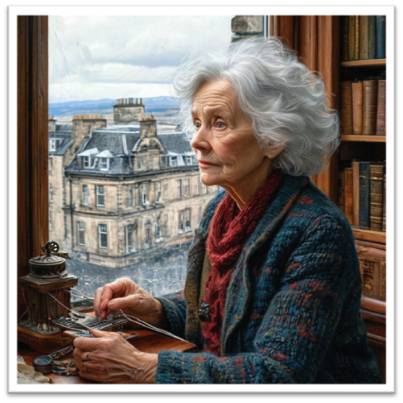
Ken was a curious soul, drawn to the boundless knowledge the internet offered. Initially, it was a tool, a way to research obscure topics and fuel his intellectual curiosity. He’d spend hours exploring history, science, and philosophy, feeling enriched by the constant stream of information.
But slowly, subtly, the internet became more than a tool; it became an obsession. The endless feeds, the captivating videos, the instant gratification of finding answers to any question – it was intoxicating. Ken found himself spending more and more time online, losing track of hours in the digital abyss.
His real-life hobbies faded. Books remained untouched, and the guitar he used to love playing sat unnoticed in the corner. His friends noticed his detachment, the glazed look in his eyes when they tried to engage him in conversation. He was present in body but absent in mind, his thoughts lost in the labyrinth of the internet. The eternal source of information had consumed Ken, leaving him a prisoner in the digital world he had embraced.
Story 19

Somewhere not far from Edinburgh, where narrow streets whispered tales of yore, you could often see an old woman named Morag. Her white hair framed a face that, despite the creases of time, retained an innocent beauty – like a delicate rose peeking through a morning frost. Morag resided in a snug flat adorned with knick-knacks and memories.
Each day, she would find herself perched by the window, knitting needles clicking like a metronome, her gaze fixed on the horizon. Her neighbours often heard her chattering away, regaling them with glorious accounts of her daughter, Adah, who she claimed had just called that morning. “She’s doing wonderfully, my dear!” Morag would exclaim, her voice imbued with warmth. Yet, despite the fervour of her tales, the phone remained silent, its screen void of Adah’s name.
Morag’s neighbours, charmed by her enchanting spirit, never questioned her narratives. They were delighted in her stories, woven with threads of love and longing. In her heart, Morag knew the truth – the silence of the phone echoed louder than any jubilant tale. Yet, in her solitude, she found solace in dreaming, crafting a world where her daughter’s love was always just a call away.
Story 20

Lorna often spoke of her solitude to her husband, Louis. “I feel so alone,” she’d sigh, gazing out of the window. Louis, a practical man, heard these words as accusations. He worked hard, provided for them, and her loneliness felt like a judgment on his efforts.


